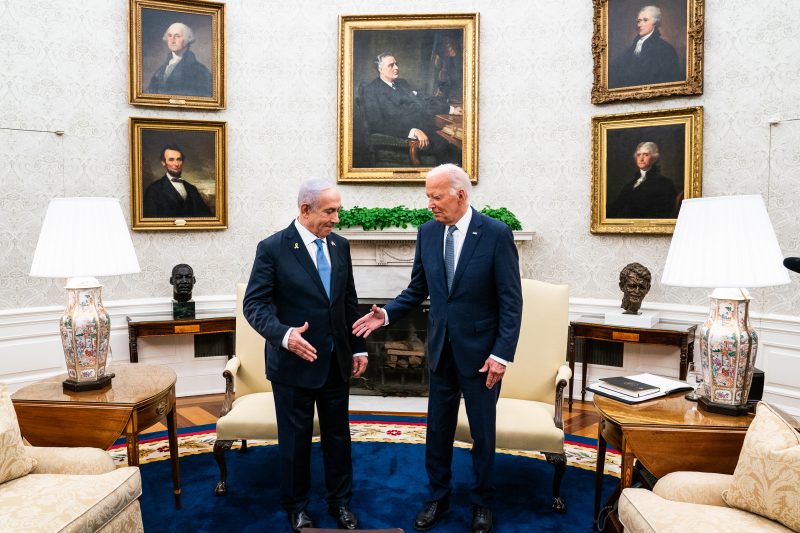The recent visit of Israeli Prime Minister Benjamin Netanyahu to the United States has sparked intense debates and criticisms among analysts and critics alike, concerning the lack of a viable plan for peace in the sensitive region of the Middle East.
The primary focus of Netanyahu’s visit was centered on bolstering ties with the United States, in particular, with President Joe Biden, as well as addressing the pressing issue of Israel’s national security. However, critics argue that the visit failed to offer any concrete steps or solutions towards achieving a sustainable peace agreement between Israel and Palestine.
One of the main concerns raised by critics is the ongoing Israeli settlement expansion in the West Bank, which is seen as a major obstacle to the prospect of a two-state solution. Despite calls from the international community to halt these activities, Netanyahu’s government has continued to approve new settlement construction, further complicating the already fragile peace process.
Moreover, Netanyahu’s staunch position on security matters, including maintaining Israeli control over the Jordan Valley and opposing the return of Palestinian refugees, has been criticized for perpetuating the status quo and undermining the chances of a meaningful peace agreement.
During his visit, Netanyahu reiterated his commitment to Israel’s security and stressed the importance of countering Iran’s regional influence. While these issues are undoubtedly critical for Israel’s national interests, critics argue that a sustainable peace plan must also address the legitimate aspirations and rights of the Palestinian people.
The lack of progress on the peace front has also reignited calls for a more proactive role by the United States in mediating the Israeli-Palestinian conflict. The Biden administration has expressed support for a two-state solution, but critics argue that diplomatic statements must be followed by concrete actions to push both parties towards meaningful negotiations.
In conclusion, Netanyahu’s recent U.S. visit has underscored the challenges and complexities surrounding the Israeli-Palestinian conflict. While the visit aimed to strengthen ties and address security concerns, critics argue that a genuine and workable plan for peace must prioritize dialogue, mutual recognition, and a commitment to resolving the key issues at the heart of the conflict. Only through a comprehensive and inclusive approach can lasting peace be achieved in the region.


























